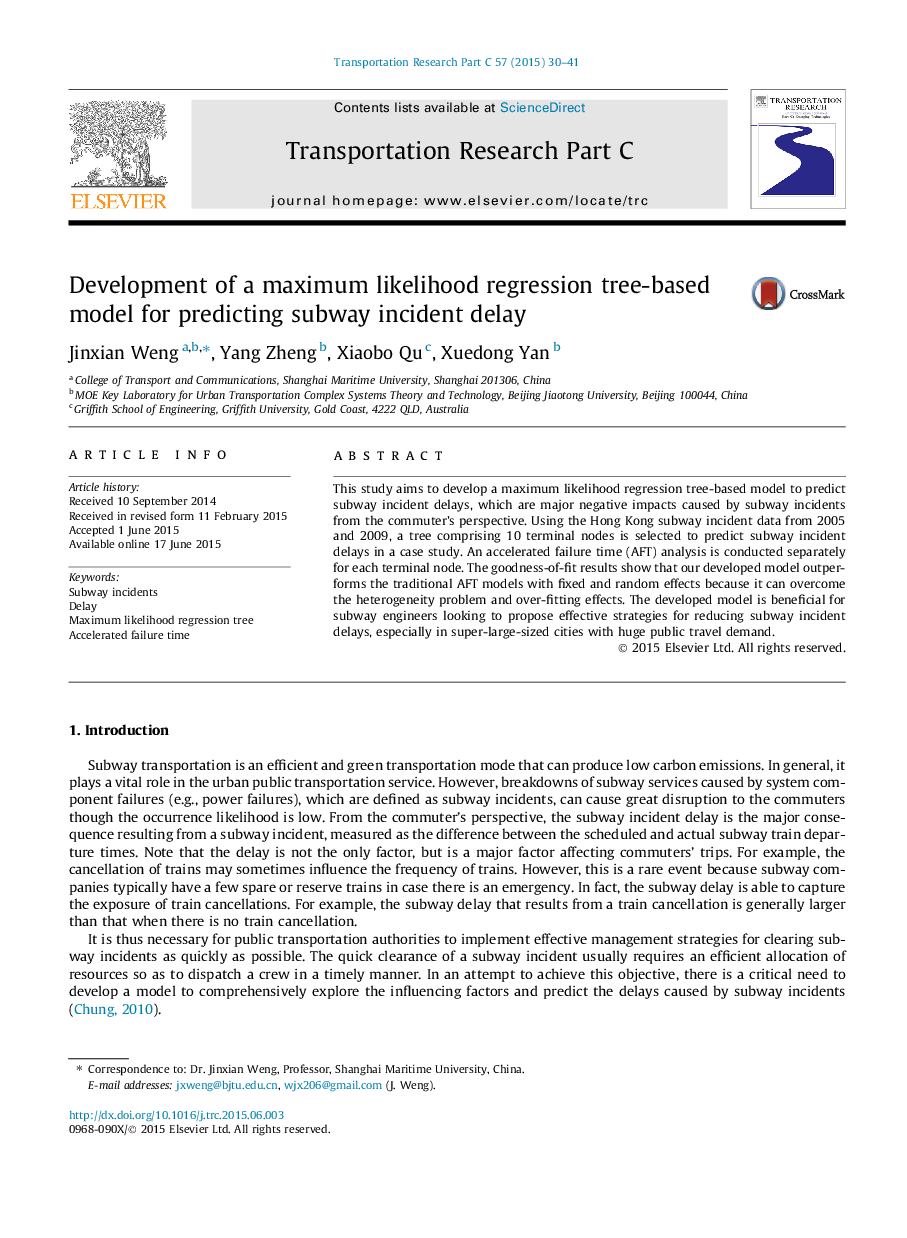| Article ID | Journal | Published Year | Pages | File Type |
|---|---|---|---|---|
| 526370 | Transportation Research Part C: Emerging Technologies | 2015 | 12 Pages |
•We develop a maximum likelihood regression tree-based model to predict subway incident delays.•An AFT model is assigned to each terminal node in the maximum likelihood regression tree.•Our tree-based model outperforms the traditional AFT models with fixed and random effects.•Our tree-based model can account for the heterogeneity effect as well as avoid the over-fitting problem.
This study aims to develop a maximum likelihood regression tree-based model to predict subway incident delays, which are major negative impacts caused by subway incidents from the commuter’s perspective. Using the Hong Kong subway incident data from 2005 and 2009, a tree comprising 10 terminal nodes is selected to predict subway incident delays in a case study. An accelerated failure time (AFT) analysis is conducted separately for each terminal node. The goodness-of-fit results show that our developed model outperforms the traditional AFT models with fixed and random effects because it can overcome the heterogeneity problem and over-fitting effects. The developed model is beneficial for subway engineers looking to propose effective strategies for reducing subway incident delays, especially in super-large-sized cities with huge public travel demand.
